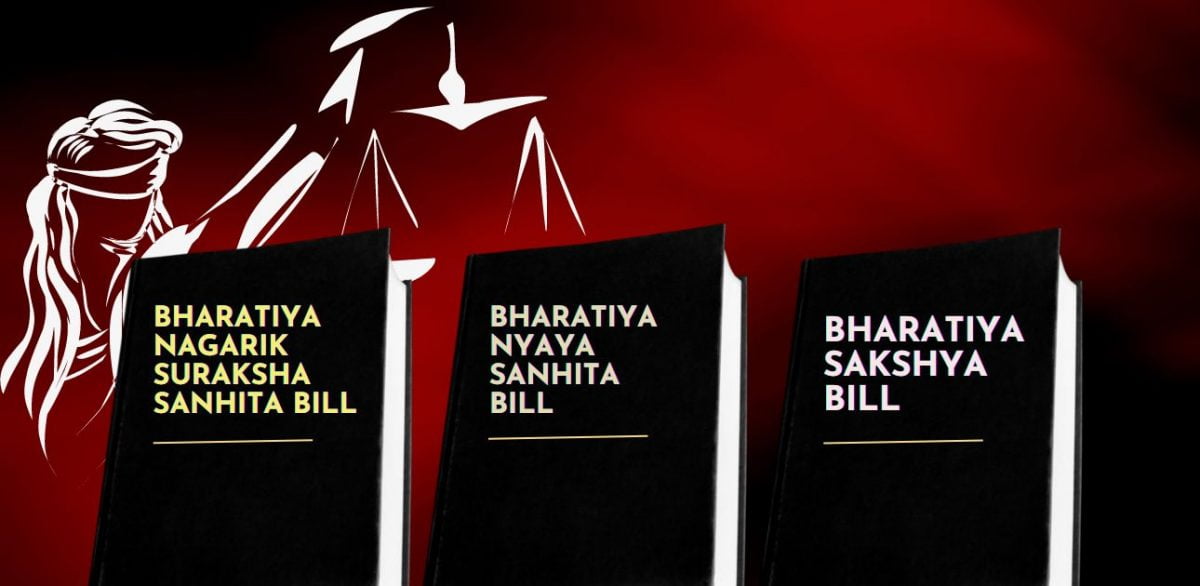The Indian government announced the implementation of three new criminal laws – Bharatiya Nyaya Sanhita (BNS), Bharatiya Nagarik Suraksha Sanhita (BNSS), and Bharatiya Saksha Adhiniyam (BSA) – effective from July 1, 2024, replacing the outdated Indian Penal Code (IPC), Criminal Procedure Code (CrPC), and Indian Evidence Act.
These laws, notified by the Ministry of Home Affairs (MHA) through separate notifications, aim to modernize the legal framework by addressing contemporary challenges while upholding constitutional values and principles. They were formulated after extensive consultations and deliberations, with revisions made based on recommendations from the Standing Committee on Home Affairs.
Key Highlights of the New Legislation:
- Bharatiya Nyaya Sanhita, 2023: Replaces the Indian Penal Code, 1860
- Sedition removed, but provisions against secessionism, separatism, and acts against the state introduced.
- Death penalty for gang rape of minors and mob lynching.
- Introduction of community service as a punishment.
- Bharatiya Nagarik Suraksha Sanhita, 2023: Replaces the CrPC, 1973
- Mandates time-bound investigation, trial, and judgment within 30 days.
- Video recording of statements of sexual assault victims made compulsory.
- Provision for attachment of property and proceeds of crime.
- Bharatiya Saksha Adhiniyam, 2023: Replaces the Indian Evidence Act, 1872
- Electronic or digital records recognized as admissible evidence in courts.
- Digitization of case records, including FIR, charge sheet, and judgment.
- Electronic records accorded the same legal validity as paper records.
These laws reflect a comprehensive overhaul of the legal framework, integrating technological advancements and forensic sciences. To facilitate their effective implementation, the government is enhancing forensic capabilities and providing training to law enforcement personnel across the country.
Union Home Minister Amit Shah, who spearheaded the drafting of these laws, emphasized the need for extensive training and technological upgrades at all levels of law enforcement to ensure their successful implementation.
The new legislation also introduces provisions for the Directorate of Prosecution, defining its functions and powers to enhance coordination and supervision during investigations. Additionally, it delineates the responsibilities of prosecuting officers to streamline the legal process and ensure accountability.
Discover more from The Doon Mozaic
Subscribe to get the latest posts sent to your email.



